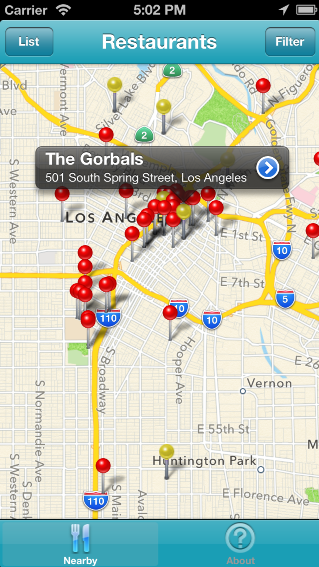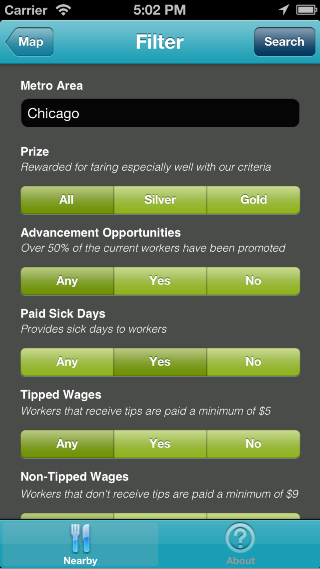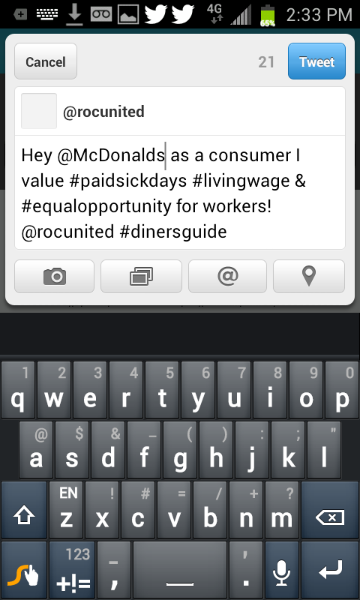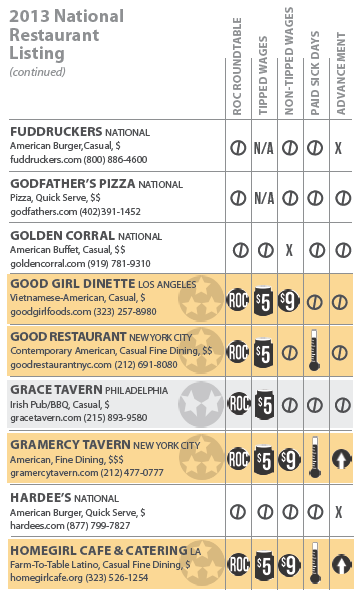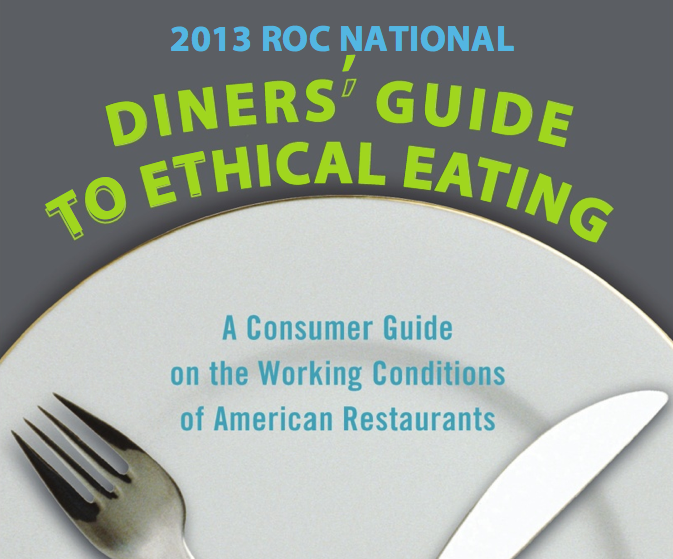Dine Right: Alumni Creates a New Smartphone App for Ethical Eating
‘Tis the season for dining out, happy hours and holiday parties at your favorite restaurants. But if you could find out, at the touch of a button, whether or not your restaurant of choice pays its employees livable wages, offers sick leave and provides them with opportunities for advancement, wouldn’t that make this season of goodwill and charity that much brighter? If you knew you had the power to influence restaurants, improve poor working conditions and reward and promote ethical establishments, wouldn’t your happy hour get even happier?
That’s what the Restaurant Opportunities Centers United (ROC United) was hoping for when they unveiled the 2nd annual National Diners’ Guide to Ethical Eating 2013: A Consumer Guide on the Working Conditions of America’s Restaurants this month, as well as an entirely new smartphone app, created by Clay Ewing (Parsons MFADT ’10), Assistant Professor at the University of Miami, putting restaurant rankings at consumers’ fingertips.
The apps are available for download here: iPhone / Android
Mark Bittman raved about the guide in his New York Times column earlier this year: “We have pocket guides for fish; finally, there’s one for humans.”
The guide and its corresponding app makes it easy for consumers and companies to evaluate more than 150 restaurants and national chains based on a number of key criteria:
- Do they provide paid sick days to ensure that those who handle and serve food are not passing on illnesses?
- Do they pay at least $9 per hour to non-‐tipped workers and at least $5 per hour to tipped workers? (The federal minimum wage is $7.25 per hour for non-‐tipped workers and just $2.13 for tipped workers.)
- Do they provide opportunities for advancement, so that at least 50 percent of their employees were promoted to those positions from within?
The guide also includes “tip cards” that customers can tear out and leave with restaurant managers and owners, and the smartphone app includes built‐in tweets for consumers to send to restaurant management, encouraging support for fair pay and working conditions and telling them how to contact ROC United.
In the 2013 edition of the guide, ROC has included 73 restaurants that are committed to taking a “high road” approach to workers and consumers, up from 35 restaurants in the 2012 edition.
“Given that the restaurant industry generally provides poverty wages, no benefits, and little opportunities for advancement, we applaud the award-winners in this Guide and encourage more restaurants to follow their successful model,” said Saru Jayaraman, Co-Founder and Co-Director of the Restaurant Opportunities Centers United.
The guide and app come on the heels of another report by the National Employment Law Project, which described the twelve lowest-paying companies in America, seven of which were restaurants. In particular, the Darden Restaurant Group was named one of the 12 lowest-paying companies in America. Darden Restaurants, including Olive Garden, Red Lobster and the Capital Grill Steakhouse, have a special notation in the Guide because workers from this company, with ROC’s support, have launched a national campaign and litigation against the company for wage theft and discrimination.
ABOUT THE RESTAURANT OPPORTUNITIES CENTERS UNITED:
Founded after September 11th, 2001 by restaurant workers displaced from the World Trade Center, the Restaurant Opportunities Centers United (ROC-‐United) seeks to improve wages and working conditions for the nation’s low‐wage restaurant workforce. ROC-‐United is the only national restaurant workers’ organization in the United States. Despite having more than 10 million restaurant workers and an economic impact of $1.7 billion annually, the restaurant industry is less than 1% unionized nationwide. Through participatory research and policy work, employer engagement, workplace justice campaigns, membership and leadership development, and more, ROC-‐United has become a powerful national vehicle for restaurant workers to lift their collective voice on issues affecting all low-‐wage workers, including the minimum wage, paid sick days, compliance with basic employment standards, and lack of health care.

